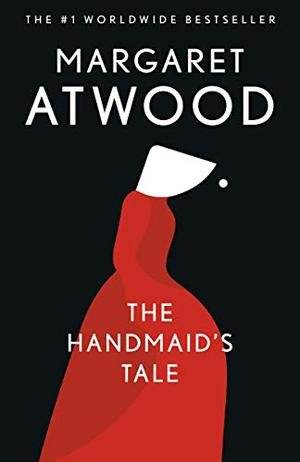Our Missing Hearts Celeste Ng (2022)
The Handmaid’s Tale Margaret Atwood (1985)
I ordered the latest Celeste Ng novel from my library reluctantly, because dystopian novels set my teeth on edge. But I had reviewed Ng’s previous non-dystopian works (Everything I Never Told You and Little Fires Everywhere) very positively, and I did not doubt her ability to deliver quality prose, so I steeled myself for a dystopian world of her creation. It was well worth all the cringing that I did.
The setting for Our Missing Hearts is an undefined time, not too long after the present day, in the Boston area and in New York City. Bird Gardner, age twelve, and his father scrape along in a grim student dormitory on a campus that closely resembles Harvard’s. Bird’s father had been a linguistics lecturer but now shelves books in the campus library.
The two keep their heads down and try not to attract attention in a society that has adopted a law called PACT, Preserving American Culture and Traditions. Under this law, Asian Americans suffer particular discrimination, and children deemed at risk of “anti-American” indoctrination can be forcibly removed from their parents. In Ng’s dystopian society, the PACT law is accepted by most of the public as a reasonable response to a previous period of civic unrest and economic crisis. Those who resist PACT are severely punished.
Bird’s mother, who left the family three years before the start of the story, was Asian American, and hence the lives of both mother and son are at risk. As Bird sets out on a journey to find his mother, the novel builds to a chilling climax.
Ng explains the basis of her plot in an Author’s Note at the end of the book: “There is a long history, in the US and elsewhere, of removing children as a means of political control.” She cites the compulsory separations of families in the years of slavery, the punitive boarding schools where Native American children were placed against the will of their parents, and the recent seizures of refugee children at the southern border of the US. These are well-documented cases, and Ng’s fictional world in Our Missing Hearts doesn’t exaggerate the dangers of such abuses of power.
As one character muses, “Is anyone listening out there? Are people simply rushing by? And how much of a difference can it really make, just one story, even all these stories taken together and funneled into the ear of the busy world. . . It is hard for anything to be heard and even if anyone hears it, how much of a difference could it really make, what change could it possibly bring . . . “ (299)
Our Missing Hearts joins the ranks of the classics of dystopian fiction that I read in high school and college: Aldous Huxley’s Brave New World (published in 1932), George Orwell’s Nineteen Eighty-Four (1949), and Ray Bradbury’s Fahrenheit 451 (1953). And, then, of course, there is The Handmaid’s Tale, which Margaret Atwood published in 1986. Until this week, I had never read Atwood’s bestseller. (Okay, okay. I really dislike dystopian novels. Even though I lived in Toronto in the 1970s, when Atwood was an up-and-coming Canadian writer and could often be spotted on downtown streets, I never got past her initial fiction offering, The Edible Woman.)
The video streaming adaptation of The Handmaid’s Tale that started in 2017 has amplified Atwood’s message, bringing her warnings to a much wider public. But the original novel, which focuses on the subjugation of women in the realm of Gilead (a remade United States), is even more disturbing than Our Missing Hearts. I was struck by Atwood’s prescience, nearly four decades ago, in constructing a fictional world that predicted toxic destruction of the global environment; extreme fundamentalist censorship of written and visual materials; inequitable stratification of society; and, most shockingly, pregnancies forced on women.
Why do people write dystopian novels? Why do they create alternative histories? It’s often to send a message about totalitarian societies. The emphasis of the work can be political, economic, scientific, environmental, technological, religious, or a combination of these aspects. Dystopias are usually constructed by those with left-wing views, but they need not be—witness Lionel Shriver’s The Mandibles: A Family, 2029-2047. I reviewed this 2016 novel which, despite the horrors of racism and poverty that Shriver depicts, is fascinating in its exaltation of a libertarian utopia that contrasts with the dystopia that she fashions.
I don’t plan to read a lot more dystopian fiction. It gives me nightmares. But I take the point that citizens in democratic societies need to be vigilant and activist if they want to protect their civil rights—indeed, their human rights. And authors like Atwood and Ng have chosen fiction as their medium of alarm, not articles in the New York Times.




